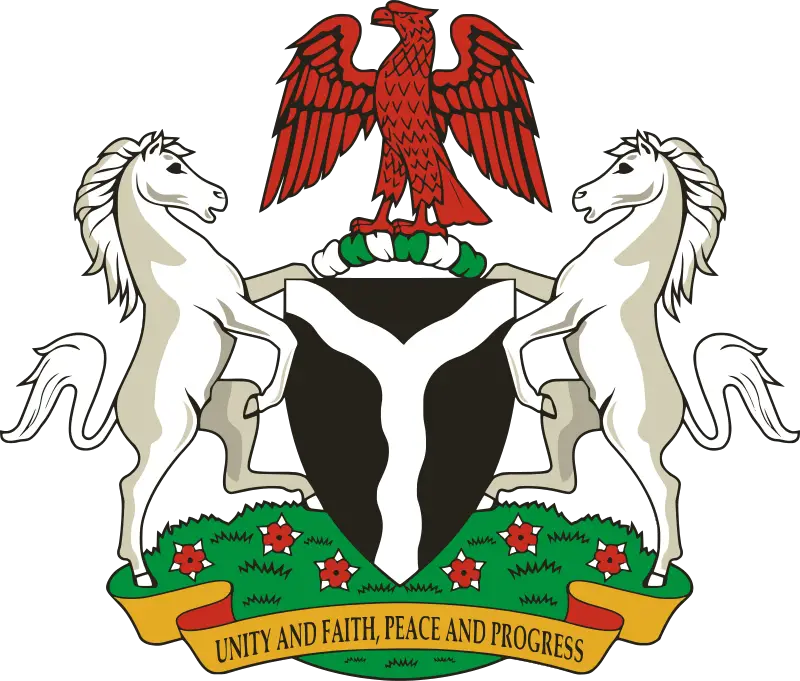Nigerian National Symbols And Their Meaning
Nigerian National Symbols are objects, signs, or emblems with added significance, which represent Nigeria as a political or cultural nation. They are the fundamental components of national identification, communication, and national activity.
They leave impressions on the history, values, culture, and traditions of a particular nation, in this case, Nigeria.
Nigerian national symbols bind the people together and strengthen their allegiance to the country, not minding tribal, religious, or family background differences.
For instance, before formal gatherings like football matches begin, the Nigerian flag is often hoisted, and the national anthem and the pledge are then rendered, while everyone stands upright. This undoubtedly inspires a sense of unity and belonging to every citizen present.
Knowing and understanding various Nigerian national symbols inculcates the spirit of patriotism into citizens. Various countries or states have their unique national symbols and identity, but for the sake of this article, we will concentrate on the Nigerian national Symbols.
Nigerian National Symbols and Their Meaning Include
The Coat of Arms

This symbol of authority was officially adopted in 1975. It is an amalgam of different images that have special significance, such as:
- The white ‘Y’ wavy shape stands for the two major rivers in Nigeria; also known as the longest rivers in Nigeria, which are River Niger and River Benue. The meeting point of the rivers is also known as a confluence.
- The black shield and the colorful wreath over the shield show Nigerian fertile and rich soil. Nigeria is known for its richness in mineral resources and soil fertility. Agriculture contributes a good percentage to the country’s total Gross Domestic Profit and thus, the importance of agriculture in Nigeria cannot be over-emphasized.
- The two white horses represent the dignity of the Nigerian society
- The red eagle stands for the strength and pride of Nigeria
- Beneath the black shield is the national flower (red flower), also called Costus spectabilis, or the Yellow Trumpet which stands for the Beauty of Nigeria.
- The inscription, “Unity and Faith, Peace and Progress” represents the Nigerian national motto, which was adopted in 1978. It was formerly written as “Peace, Unity, and Freedom”
The Nigerian coat of arms is used as a stamp on the seal of the President, Vice President, the House of Representatives, and the House of Senate. A coat of arms is one of the most important Nigerian national symbols because it is almost like a mark of Nigerian ownership.
The National Flag
The national flag is part of the Nigerian national symbols of authority both within and outside Nigeria. In the year 1959, a year before Independence, Taiwo Akinkunmi designed the Nigerian flag. He was rewarded with a sum of 100 pounds for winning this design contest.
On 1st October 1960, the flag was first raised to commission Nigeria’s independence. The green colour in the Nigerian flag represents the rich natural resources and the wealth of the Nigerian nation while the white colour represents Peace and Unity.
Some important rules guiding the National Flag include:
On no account should any other flag be raised higher than the Nigerian flag.
The Nigerian flag must be hung on important days or any important event.
The flag must be hoisted at sunrise and lowered at sunset.
If for any reason, the Nigerian flag get torn, it must be replaced.
As a mark of respect for the national flag, all citizens are expected to stand erect for some minutes once the flag is raised.
Official Seal of the President
The President of the Federal Republic of Nigeria can authenticate any deals with their official seal, which serves as a symbol of the president’s authority. This symbol of authority was adopted first in the year 1979 at the emergence of the second republic by President Shehu Shagari.
Later, it was discarded under the 1983–1999 military regime. At the emergence of the fourth republic which ushered in Olusegun Obasanjo as the President of the nation of Nigeria, the official seal was brought back into usage. However, it is still recognized to date.
Without the seal of office, any information from the presidential table is regarded as unlawful, hence, the seal denotes the power to enforce any dealings from the presidential table in Nigeria. This official seal of the president is among the most invaluable Nigerian national symbols.
The Mace
Just as the Seal of office symbolizes the authority of the presidency, the mace denotes the symbol of authority of the legislative arm of the Nigerian government. The mace is a three-foot-long staff made of gold. The coat of arms can be found engrafted at the top corner of the mace.
Before any sitting in the House of Representatives or Senate begins, the mace must be present, if not, every law or decision made in that sitting becomes null and void. The mace is part of the invaluable Nigerian national symbols because, without it, laws cannot stand.
The National Anthem
One of the fundamental Nigerian national symbols that binds all Nigerians as one sovereign state is the national anthem. It is regarded as so because the anthem reveals the struggles and strength of our hero’s past and also the specific history of Nigerian society.
The national anthem is usually rendered before the commencement of any official gathering in the country and as a mark of respect to the Nigerian nation, everyone is expected to stand erect once the anthem is being rendered.
The Nigerian police band, directed by Mr. Benedict E. Odiase, wrote and composed the current national anthem in 1978. It has two verses;
1st Verse
Arise O’ Compatriots,
Nigeria’s call obey
To serve our fatherland.
With love and strength and faith
The labour of our heroes’ past
Shall never be in vain
To serve with heart and might
One nation bound in freedom, peace and unity
2nd Verse
Oh God of Creation
Direct our noble cause
Guide our leaders right
Help our youth the truth to know
In love and honesty to grow
And living just and true
Great lofty heights attain
To build a nation where peace and justice shall reign
The National Pledge
The National Pledge was written by Prof. (Mrs.) Felicia Adebola Adedoyin in June 1976. It is one of the Nigerian national symbols, and it represents a citizen’s vow to serve Nigeria with loyalty and honesty.
In September 1976, General Olusegun Obasanjo declared a mandate that all Nigerian schools should chant the national anthem on the assembly field each morning. Eventually, the singing of the national pledge came after the anthem, so Nigerian primary and secondary schools started and continued reciting them during their morning assembly. To date, they still practice this.
Lyrics of the National Pledge
I pledge to Nigeria my country
To be faithful loyal and honesty
And to serve Nigeria with all my strength
To defend her unity and uphold her honour and glory
So help me God
Other Nigerian National Symbols include:
The Nigerian National flower
The National flower is scientifically called Costus spectabilis, also known as the yellow trumpet. This flower is normally yellow in colour, but for some unexplainable reason, the flower is painted red as part of Nigerian national symbols.
The national flower, the yellow trumpet, represents the beauty of Nigeria as a nation. Most people are not even aware that this flower is among Nigerian national symbols.
The Nigerian Naira
The official unit of exchange in Nigeria is the naira and the sole authorized issuer is the Central Bank of Nigeria(CBN). It is also a means of exchange for both financial and business transactions inside and outside of Nigeria. The Naira is one of the Nigerian national symbols.
The Nigerian Armed forces
The Nigerian armed force symbolizes the nation’s defense and shield of protection. They are also part of the executive branch of the Nigerian government and among the Nigerian national symbols.
No one outside the armed force dares to wear any clothing having their uniform’s color, commonly known by Nigerians as an “army color”. It is believed that such colors are special just for the armed forces and anyone caught violating this principle often receives severe punishment because it is seen as disrespect to the military forces.
The Nigerian Colours
The official colours of the Nigerian nation are green and white. The green colour shows Nigeria’s rich natural resources, while the white colour shows Peace and Unity. Every 1st of October, Nigerians normally wear green and white colour to celebrate Independence day.
Conclusion: These National Nigerian symbols not only remind us of our history, but they also clearly depict the basic responsibilities we have as citizens of Nigeria. Let us not overlook our individual and collective responsibilities as citizens, but instead put in our whole possible best to make Nigeria work.
The Nigerian national symbols are still very much relevant and play important roles in Nigeria as a whole.
Also noteworthy, the president of Nigeria is trusted to be Nigeria’s number 1 citizen and he represents the majority of Nigerians both inside and outside the nation. Whatever he thinks, says, or accepts is taken as representative of what Nigerians as a whole think, say, or accept.
Therefore, in order to effectively and accurately represent Nigerians, the presidency of Nigeria should be held by a leader who is smart, strategic, and transparent in action.



